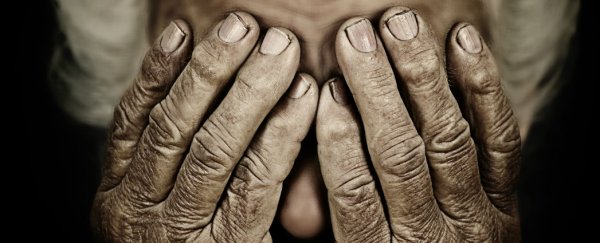How long we've been on the planet isn't necessarily reflected in our biological age, an international team of scientists has found. According to a new study, some of us are ageing faster than others, and there can be significant variations in how run-down our bodies become as we develop as adults.
The team looked at physiological markers in almost 1,000 38-year-olds, and while most had biological ages that roughly matched the number of birthdays they'd celebrated, some of the test subjects had bodies that appeared to be much younger or older, based on a series of medical examinations.
The markers used to measure biological age included blood pressure, organ function, metabolism, cholesterol levels, and cardiovascular fitness - these markers were assessed at the ages of 26, 32 and 38. By looking at the measurements over time, the academics were able to produce a 'rate of ageing' for each participant in the study.
The biological ages across the group of 38-year-olds varied from a youthful 28 to a creaky 61. "Already, before midlife, individuals who were ageing more rapidly were less physically able, showed cognitive decline and brain ageing, self-reported worse health, and looked older," explains the report, which has been published in the Proceedings of the National Academy of Sciences.
It turns out that the motto 'live fast, die young' actually has plenty of truth behind it - or at least 'live fast, age more quickly'.
The data were extracted from the larger Dunedin Study, a landmark research project that's been running since 1972. In total, there was enough information to work with for 954 of the original 1,037 participants in the Dunedin Study. The researchers also enlisted the help of a group of volunteers to rate the ages of participants based on their photos. Unsurprisingly, those who had higher biological ages were also found to look older, though the ageing process typically affects our body's inner workings before our outer appearance begins to change.
It's not all to do with our genes either. "There's a great deal of environmental influence," says Dan Belsky, an assistant professor of geriatrics at Duke University's Centre for Ageing and one of the report authors, which gives researchers some hope that medical treatments could slow down the ageing process and improve the quality of later life. "Most studies of ageing look at seniors, but if we want to be able to prevent age-related disease, we're going to have to start studying ageing in young people."
"As we get older, our risk grows for all kinds of different diseases," adds Belsky. "To prevent multiple diseases [like heart disease or cancer] simultaneously, ageing itself has to be the target. Otherwise, it's a game of whack-a-mole."
The paper's methods are a proof of concept, which the researchers hope can inform future work and data analysis looking at the effects of ageing.
